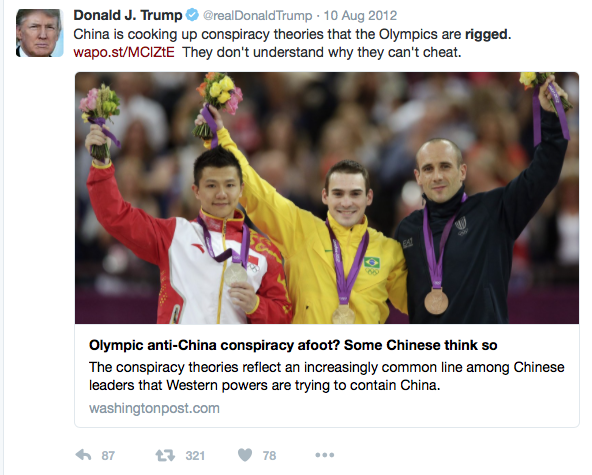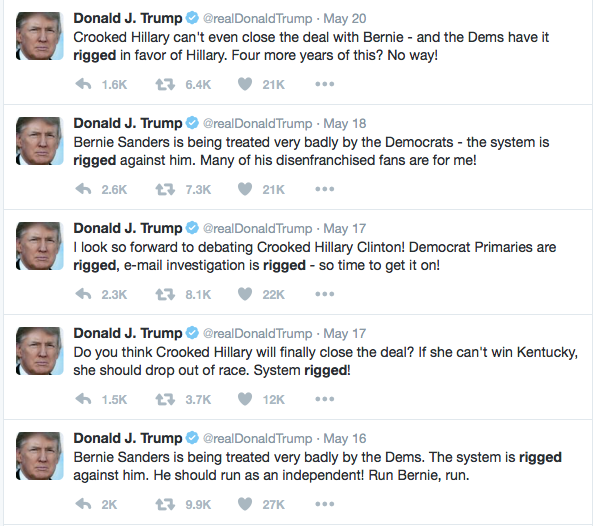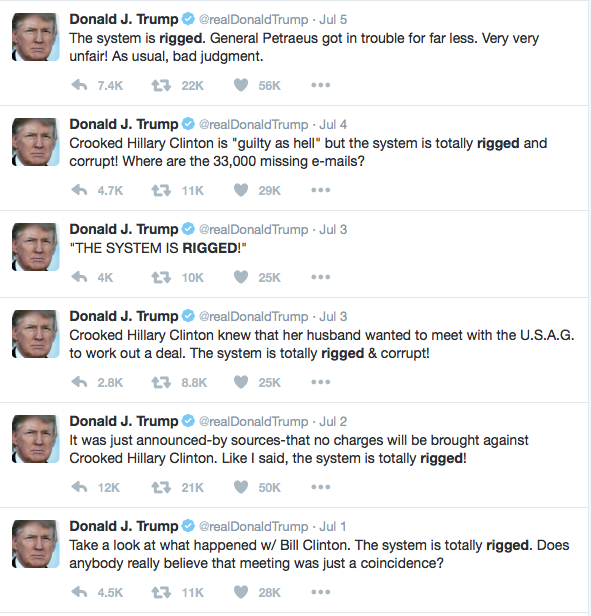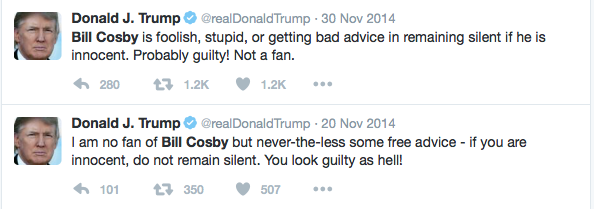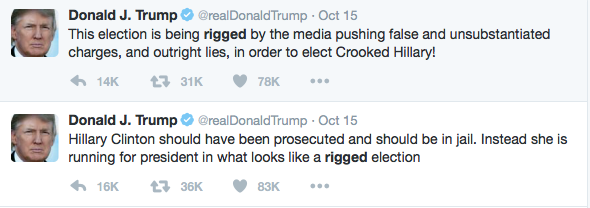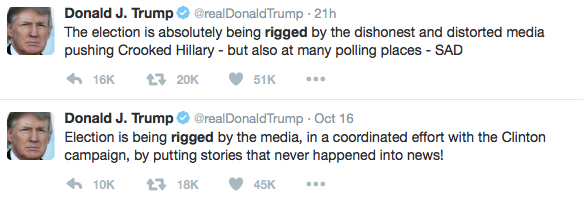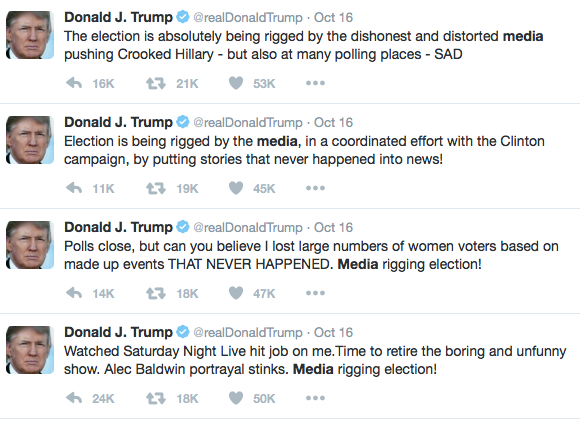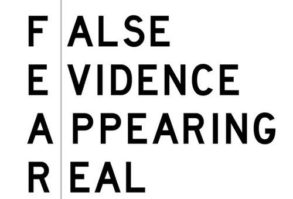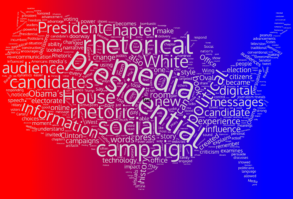Speech is a powerful lord… which by means of the finest and most invisible body effects the divinest works: it can stop fear and banish grief and create joy and nurture pity.–Encomium of Helen by Gorgias
Gorgias, a Sophist, who taught rhetorical skills and wrote about the power of language in ancient Greek times. His words still resonate today about the persuasive nature of language.
Fast forward to Plato’s time when he wrote his important piece titled Gorgias–where Plato’s teacher, Socrates has a conversation with Gorgias about the dangers of rhetoric. Patricia Bissell and Bruce Herzberg summarizes Gorgias in The Rhetorical Tradition: Readings from Classical Times to the Present, that sophists Polus and Gorgias believe”<Socrates> should admit that rhetoric is beneficial to orators, for it enables them to get what they want.” Socrates worried that rhetoric was one of cookery and if “orators exercise their power at other people’s expense, they are destroying their souls.” An excerpt of Gorgias where Socrates worries rhetoric is just persuasion:
Socrates: Then the case is the same in all the other arts from he orator and his rhetoric: there is no need to know the truth of the actual matters, but one merely needs to have discovered some device of persuasion which will make one appear to those who do not know to know better than those who know.
What do ancient Greek texts have to do with Donald Trump’s rhetorical style? Trump’s rhetorical strategy has been one to plant seeds of doubt where he appears to know better than those who truly do know better.
Rigged Rhetoric
Lets take a look at Donald Trump’s Twitter rhetoric. And start with when Donald Trump denounced conspiracy theories.
Donald Trump is accusing China of “cooking up conspiracy theories” about accusations that the 2012 Olympics were rigged. Sound familiar? But this time, Donald Trump is claiming that the media is dishonest and the election process is rigged.
In May 2016 Donald Trump tweeted about how the system is rigged against Bernie Sanders.
In July 2016 Trump was still discussing how the election is rigged. Again, planting more doubt and fear into American’s minds. Each time Donald Trump says rigged it’s in reference to a situation that he can not control.
Using repetition as a rhetorical device is smart. The more he says the word “rigged” the more the word will become part of America’s rhetoric. I have already noticed the media repeating the word over and over while reporting on Donald Trump. Trump supporters say the word as if the word has always been associated with media. The more “rigged” is discussed it labels a certain group or person. The repetition of name calling Larry Powerll and Joseph Cowart says in their book Political Campaign Communcaiton, is “the propagandist’s intent is to evoke a negative emotional reaction.” So, when Trump repeats “Crooked Hillary” “Rigged Election” and “Dishonest Media” these labels then start to resonate with people who then see only the negative aspects to what Trump describes without seeking out more information. The progandist wants you to believe what they are saying to be true because they want to instill doubt in people’s minds. Repetition is one of the ways a propagandist will do so.
The Tape
In November 2014, Trump gave Bill Cosby unsolicited advice over Twitter. Bill Cosby is accused of drugging and raping women. Trump even admits Cosby is probably guilty. But, Donald Trump believes one should not remain silent if one thinks they are innocent.
Fast forward to ALMOST exactly two years. One of many October surprises this election season revealed a scandoulous tape featuring Trump discussions women in lewd terms. Donald Trump is accused of sexual misconduct from many women after an Access Hollywood tape surfaced where he described actual actions towards women. The same night the tape was released Trump released a videotaped apology. Trump read the apology without much emotion or regret in his voice. Towards the end of Trump’s apology–he used former President Bill Clinton as a scapegoat saying President Clinton did far worse than what he did. The apology came off as cold and not as the heartfelt apology his campaign claims.
Before the second debate, Trump held a press conference with four women who accused Bill Clinton of inappropriate behavior. While Trump seemed to empathize with their stories, he has since said all the women who have accused him of inappropriate behavior are liars. Ironically, he chastised President Bill Clinton for doing the same to the women at the press conference.
During the debate, Anderson Cooper asked about the released tape. Trump brushed off his comments as mere locker room talk–which negated the videotaped apology two nights before.
Trump’s rhetoric since the tape has been brash, bombastic, and filled with unsound arguments. His deflection of sexual assault charges has created a new rhetorical strategy to project blame on the media. Trump had blacklisted several media organizations and reporters from his rallies and access to his overall campaign. Yet, he still blames the media for not treating him fairly. How can the media treat Trump fairly when they are not even allowed to cover his campaign up close.
Donald Trump’s latest tweets are about the dishonest media. Trump even wants Saturday Night Live cancelled after Alec Baldwin’s dead-on impression of him. This rhetoric deflects from the numerous sexual assault accusations as well as distorts information without any proof. Again, the rhetorical strategy is to invoke fear and doubt. Again, Trump wants people to believe he knows better than the people IN the know.
Look at the tweet above that says he can not believe he “lost large numbers of women voters based on made up events THAT NEVER HAPPENED.” He deflected the blame on to the media, which is him stalling and ignoring the accusations of misconduct with women altogether.
The above examples show the repetitious ways Donald Trump instills the idea that accusations of sexual assault are fictional, the media is rigged and so is the election. Trump has every right to speak out against the inappropriate sexual conduct charges, but so do the women. All assault charges must be taken seriously, especially after a tape and several examples show he bragged about such behavior.
Truth
As for the media being rigged– the freedom of the press is a Constitutional right that helps make us a true democracy. The Newseum in Washington, D.C. has a wall that shows how many countries are censored. The museum is dedicated to celebrating our country’s news history. The press documents our country’s history–the good and the bad.
Trump’s rhetoric is dangerous, especially when he says he wants Saturday Night Live cancelled and blacklists news organizations from his campaign. If we take away the freedom of speech–we, as a country, are in danger of censorship, and having our country’s information solely controlled by people who think they know better. Yes, many probably say the media is already controlling the messages Americans receive–that is nothing new– but today there’s so many more choices that make it harder to decipher the true mission of the press. Journalists seek out the truth. Not many realize that journalists go by a code of ethics.
As for social media, a code of ethics are non existent. Social media is much like the Wild Wild West where anything and everything goes. Social media allows for Donald Trump’s rigged rhetoric to spread, clowns to terrorize cities and Facebook rumors to run rampant. The more repetitious a message–the more truth it may hold to the person reading those messages–especially if one shares stories through Facebook or Twitter. The opinion leaders, those that you trust the most in your life, may not have vetted the stories they share. Beware of the Share is my motto.
Social media is where the once voiceless has a voice. But, there’s a downside to gathering information through social media and the Internet. The Internet allows us all to narrow our media consumption. People can narrow their focus to only web sites that they may agree with. Before the Internet people read papers and watched local and national news. The messages were more contained. Now, messages are everywhere. Information is at everyone’s fingertips. With this access is where consipiracy theories, hoaxes, and urban legends permeate. What Americans need to remember when trying to find the truth is that the Internet can house many web sites that are considered alternative journalism with no real gatekeepers. Many political news web sites promote propaganda–catering to only one side of the story. The best news organizations will present both sides and allow you to formulate your own opinions. The best news organizations will also vet a story and provide evidence.
What the mainstream media does do is show people what is news. Donald Trump’s rhetoric is unlike any presidential candidate Americans have been exposed to. Donald Trump knows that if he wants to keep in the news– good or bad–his rhetoric has to be filled with bombastic words and empty arguments that make the media wondering what will he say next.
Trump knows how to sell his story. He has had a successful reality show on NBC. Trump knows how to keep audiences interested. What Trump does well is create messages that keep the media trying to translate his message. Deflecting message on top of message. Trump is the king of vagueness. He starts tweets with “Many people have said…” but without stating specifics. If you are a Hillary Clinton fan or a Donald Trump fan you can find media that caters to both party’s ideals. The mainstream media is concentrating on Hillary’s political scandals, but Donald Trump is louder that his words alone create his own problems.
Trump is now running not only against Hillary, but against the media. Trump allowed the media to control his message whereas Hillary’s campaign has controlled every single morsel of a soundbite. Trump blacklisted media organizations and insinuated censorship. A person who does not like being discussed in the media should get out of the media spotlight. Criticism will follow you. But, our country was built on freedom of speech and freedom of the press. Even our forefathers loathed the media, but they realized that the media gave voice to the people and the media kept the poltical powers in check.
As for Twitter–this gives Trump the voice to combat the media. He has every right to keep posting to Twitter. It’s his right–his freedom. But, remember, repetition is a rhetorical strategy. And every time you keep seeing the word “rigged” in a tweet by Donald Trump–ask for evidence. Ask for facts from credible, and reliable sources– not sources that tell you what you want to hear. Read several credible sources that challenge the way you might look at the story. Remember–language is powerful–and people who have power may not use it to your benefit.

